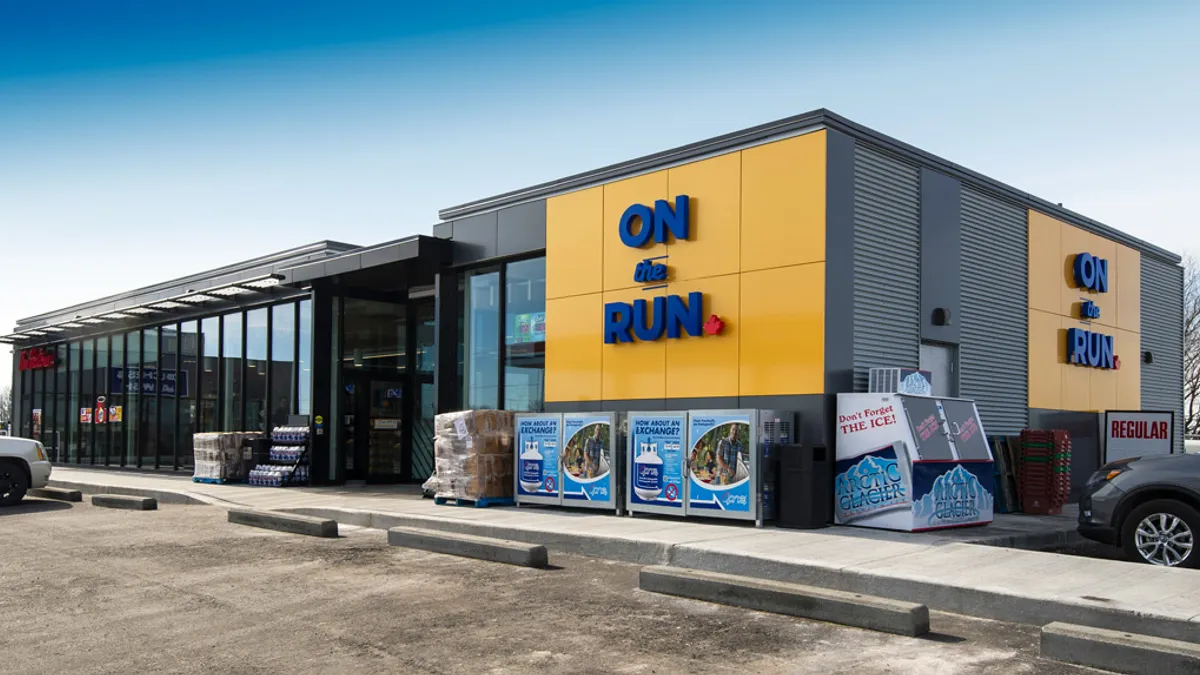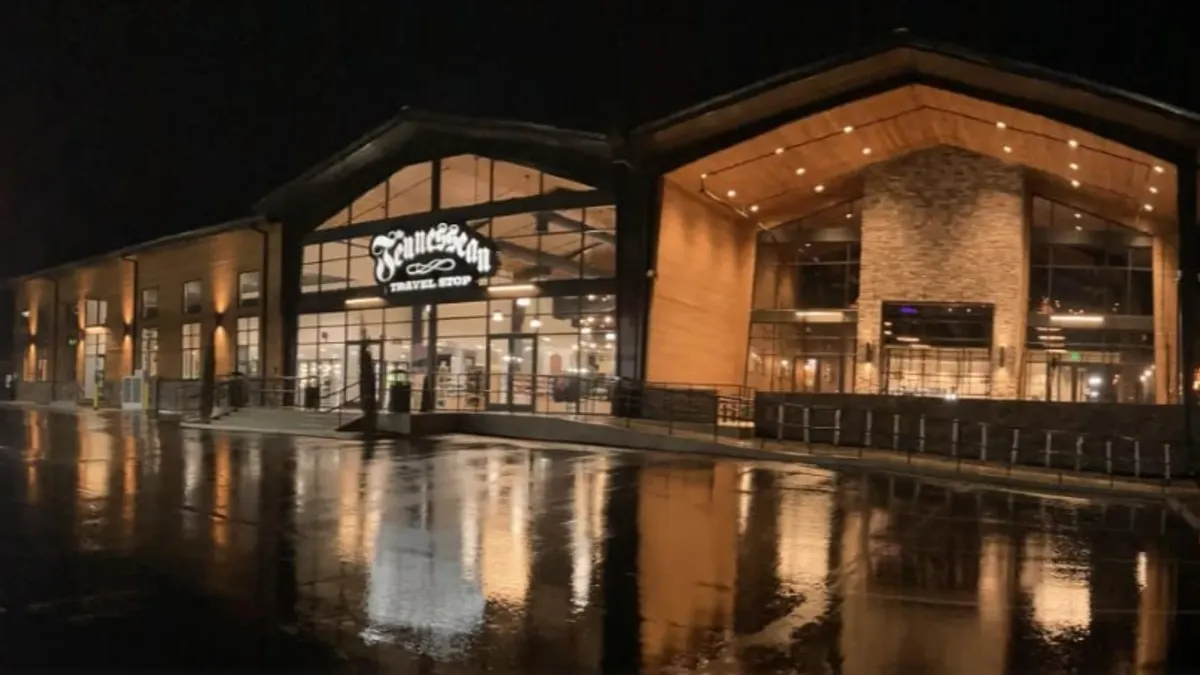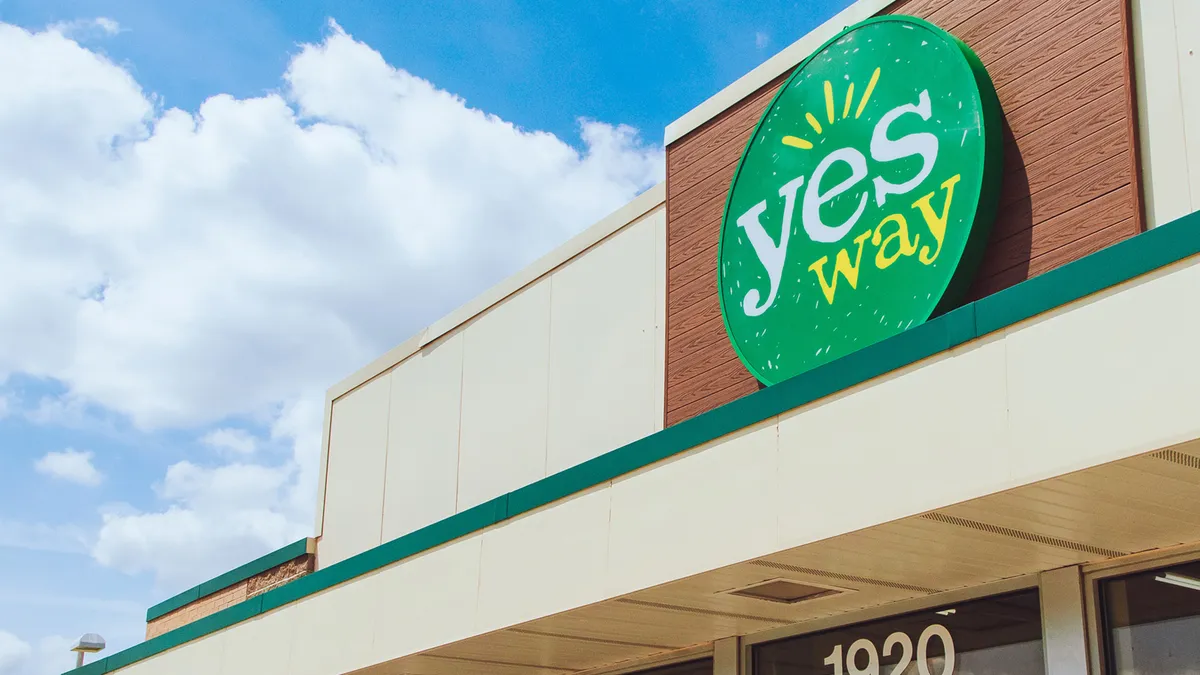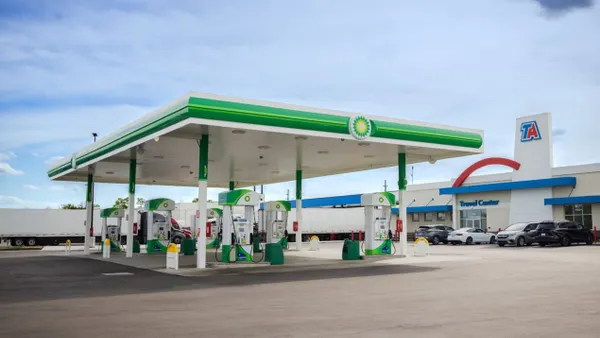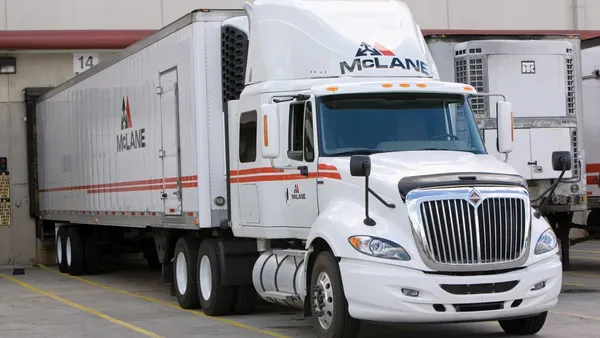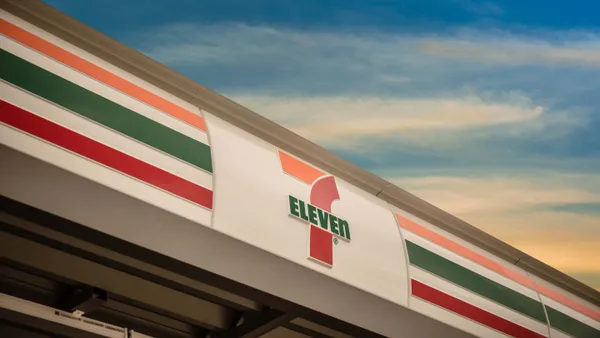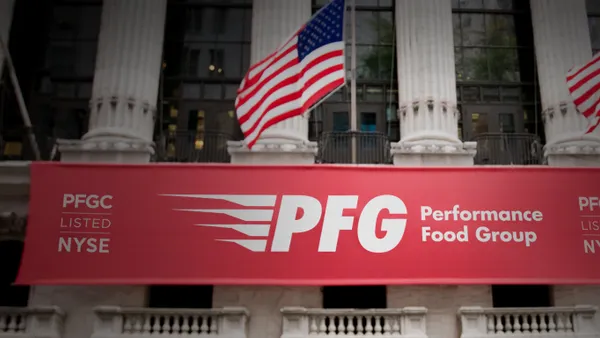Dive Brief:
- Canadian fuel and c-store operator Parkland experienced non-recurring wholesale inventory and risk management losses of CA$65 million in its U.S. business during the fiscal third quarter, according to a Wednesday announcement.
- Parkland’s losses in the U.S. stemmed from the company growing its wholesale sector at a larger rate than its base business, Bob Espey, president and CEO of Parkland, said during the company’s third-quarter earnings call Wednesday.
- Company-wide, Parkland saw its earnings before interest, taxes, depreciation and amortization (EBITDA) dip CA$39 million compared to the previous 52 weeks, but expects the metric to rise by the end of the year, according to the announcement.
Dive Insight:
Parkland’s company-wide struggles in Q3 occurred from “significant ongoing uncertainty in the macroeconomic and geopolitical environment,” Espey said during Wednesday’s earnings call. The company also blamed volatile product prices for its tough period.
“We know our third-quarter results do not meet our expectations,” Espey said during Wednesday’s call.
Marcel Teunissen, CFO of Parkland, said the difficult quarter was unusual and something that hasn’t occurred in a long time.
“It was a black swan event,” he said. “But our job is to anticipate and understand it.”
Regarding Parkland’s U.S. sector, Epsey said during Wednesday’s call that the increased inventory it was holding relative to the size of its business “created the exposure.” The losses were larger than expected gains from Parkland’s retail and commercial businesses during the quarter, according to the announcement.
”In terms of the execution of the parameters, everything was in compliance,” he said. “Where we overestimated was in growing the wholesale business as large as we did.”
According to the International Gas Union, average world wholesale price levels went from a record-low $3.22 per Metric Million British Thermal Unit in 2020 to $5.54 in 2021 — just slightly cheaper than the highest level ever recorded, $5.58, in 2013 — resulting in “unprecedented” price volatility, the organization said.
That sort of volatility seems to be in line with what Parkland has experienced.
Parkland is currently “taking steps to improve inventory management” for its U.S. business, including “significantly” reducing third-party wholesale operations to minimize the impact of the volatility, Epsey said during the call.
Moving into the fourth quarter, Epsey expects Parkland’s U.S. business to bounce back to normal rates.
”We do see this as an isolated incident,” he said. “Long-term, we’re on track to hitting our growth targets.”
With 1,860 stores in its Canadian network, Calgary, Alberta-based Parkland is the largest independent fuel retailer and second-largest c-store operator in Canada. In the U.S., Parkland supplies fuel to independently owned gas stations and operates 212 c-stores under a variety of banners, including On the Run, Rhinehart Oil, Hart’s, Farstad Oil, Superpumper, KB Express, Mort Distributing and more.


